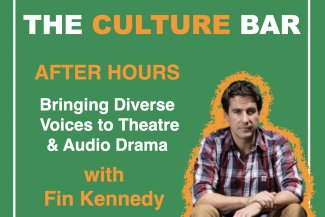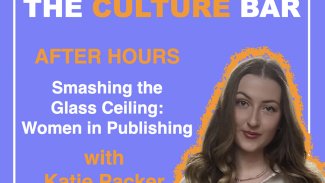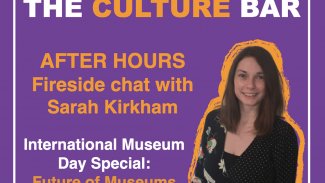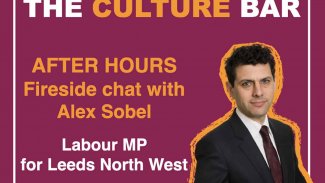The Culture Bar — After Hours: Bringing Diverse Voices to Theatre & Audio Drama
21/6/2021

The Culture Bar: After Hours
“…it’s not who you are, but what you bring”
In this After Hours fireside chat, we spoke to playwright Fin Kennedy. Our conversation focussed on Bringing Diverse Voices to Theatre and Audio Drama.
In this insightful and inspirational interview you will hear:
>Fin’s approach to writing dramas and topic focus
>insights into his BBC Radio 4 play ‘On Kosovo Field’ and the inspiration and message behind it
>his new audio drama series ‘Out of the Woods’ supporting emerging Balkan writers
>his role as Artistic Director at Tamasha Theatre Company and Tamasha Playwrights
>what more needs to be done in the theatre and audio drama industry to ensure marginalised voices are heard
> what more could have been done during COVID19 to support theatres and playwrights
Interviewed and hosted by HP’s Fiona Livingston
Useful links and resources:
Connect with Fin:
Fin’s Twitter: @finkennedy
Resources:
Out of the Woods podcast series
On Kosovo Field on BBC Radio 4
Tamasha Theatre Company
Fin’s In Battalions report
Mulberry School
Intent New Theatre
Hope 6 Demolition Project
Under the Mask by Shaan Sahota
This is the fourth episode in our spin-off series of short After Hours chats discussing issues relating more broadly to the arts and culture sector.
The Culture Bar is a podcast series created by HarrisonParrott focussing on conversations in culture and the arts.
Find us on Spotify, iTunes, Google Podcasts, YouTube, Podbean, Deezer, Stitcher, Pocket Casts and all good podcatcher sites.
Use #theculturebar or follow us on Twitter @_TheCultureBar to keep up with our latest releases.
A special thank you to Robert Cochrane as the composer of the theme tune music, and Merlyn Thomas our editor.


